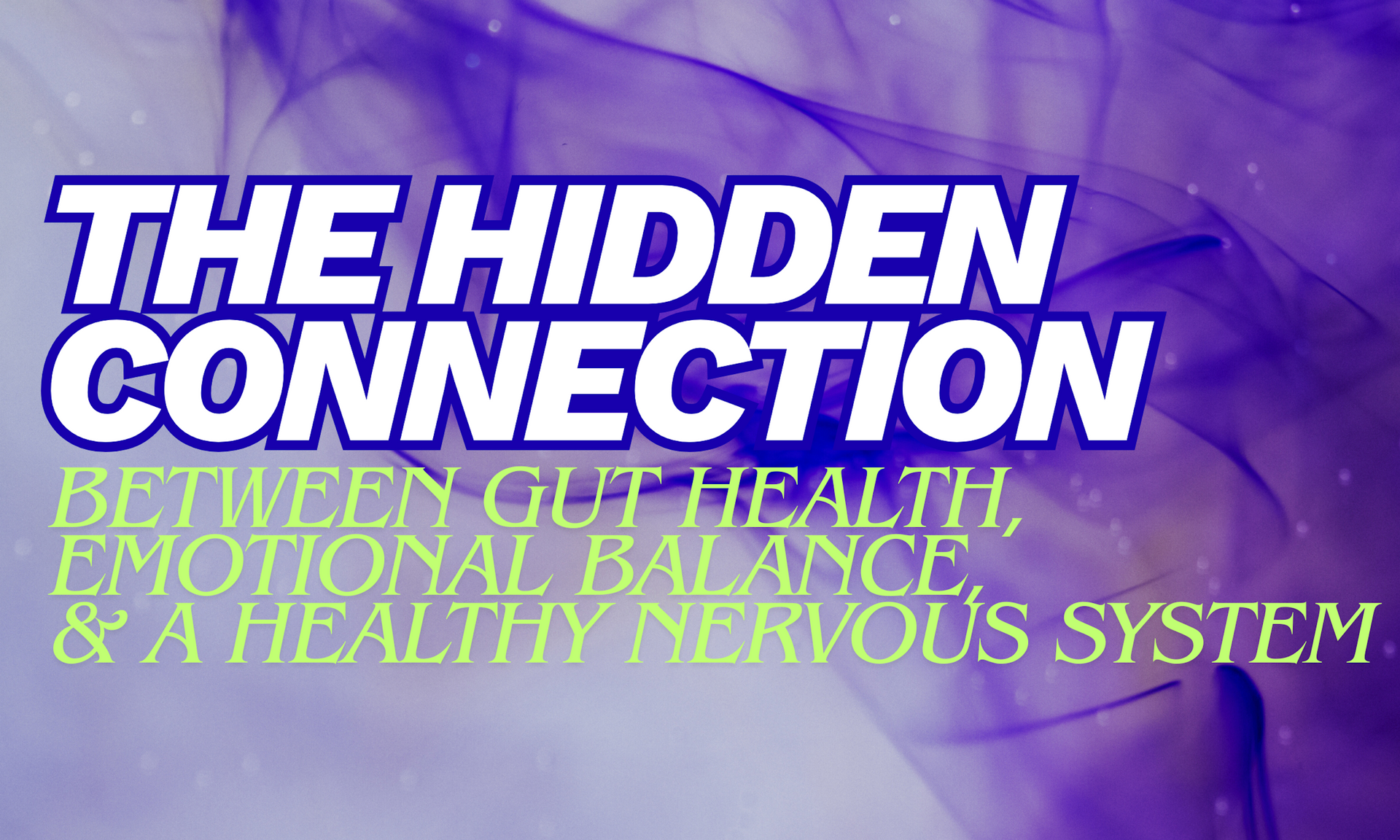Why should children be checked by a chiropractor?
Children with a properly aligned spine and neck tend to have better posture and be in better overall health. Chiropractic not only helps align the spine and neck, but also helps to clear the neural pathways.

Doctors of Chiropractic work with reducing spinal nerve stress by correcting spinal misalignments. Since the master control system of the body is the nervous system, its proper function is imperative for overall health and well-being.
The American Chiropractic Association quotes, "in children, chiropractic is also commonly used as primary or adjunctive therapy for non-musculoskeletal conditions such as colic, enuresis, asthma, recurrent otitis media, cancer and illness prevention."
Pediatric chiropractic care is a specialty that concentrates on treating infants, toddlers, children, and teens in order to help align their spine and balance their nervous system. It promotes a broad spectrum of benefits such as supporting growth milestones, enhancing immune health, aiding in digestion, reducing ear infections and allergies, improving sleep, and more. A pediatric chiropractor, like Dr. D, has undergone specialized training to ensure that the care, evaluation, and adjustments they provide to kids correspond properly to their specific age, body type, and unique requirements.
Chiropractic adjustments on kids are safe, non-invasive, and use only light and gentle pressure to achieve optimal results. Many parents comment that it looks like just a gentle touch, tickle, or massage. On bigger kids, we can incorporate fun activities into their adjustments, such as jumping.

Children are susceptible to trauma in their spines from various activities and events. Birth in our society can often be a traumatic event, even if operative devices are not used. Simple micro traumas from diapering techniques to excessive time in infant seats can also affect the developing spine and interfere with nervous system function.
From promoting healthier sleep and boosting immunity to improving behavioral issues and even aiding in digestion, regular chiropractic care may benefit your kid(s).
While there are various reasons you may decide to see a pediatric chiropractor, here is our list of the top 10 benefits:
1. IT BALANCES YOUR CHILD’S NERVOUS SYSTEM
When our spine is out of alignment, this can affect so much more than just our posture, aches, and pains. The spine is the central network of our entire system– physical, mental, emotional, and energetic. Our children’s spine and nervous system are very delicate as they are still growing and developing.
Regular adjustments to a child’s back and neck will invite their system to feel more synchronized and settled. A balanced nervous system translates into many areas of their life, promoting wellbeing, greater immunity, and healthy spinal development.
2. IT REVITALIZES CHILDREN’S IMMUNE HEALTH
Our immune response becomes activated based on neurotransmitters which are dependent on the health and functionality of our spinal cord. Something as simple as a pinched nerve or as severe as a slipped disc can disrupt the ability of our immune system to respond to outside threats.
This is especially important for toddlers and children who are still building their immune health and exposed to more germs than adults. It has been found that children who see a pediatric chiropractor regularly get fewer colds than those who have never seen one.
3. IT PROMOTES HEALTHIER SLEEP CYCLES
Is your child a good sleeper? Chiropractic care can help a child sleep better through the night and feel more rested and calm. After regular pediatric chiropractic visits, parents have noted positive changes in their child’s sleep patterns such as earlier bedtimes, fewer late night wake-ups, more consistent sleep behavior or naps, decreased lethargy, and a more balanced flow of energy levels.
4. IT IMPROVES DIGESTION AND CONSTIPATION
If your child is experiencing digestive issues, such as constipation, a pediatric chiropractor can offer your little one an extremely gentle and non-invasive adjustment as opposed to medications or other harsh treatments. Light adjustments administered to the child’s spine and neck have been known to relieve constipation and numerous digestive issues.
Chiropractic care is intended to help release trapped gas from the joints which can improve blood circulation. Healthier blood flow is a super simple way to encourage more regular digestion. Not to mention, proper alignment of the mid-low back, hips and pelvic area can relieve tension on the intestines and promote a more easeful experience.
5. IT REDUCES ALLERGIES, EAR INFECTIONS, AND ASTHMA
Have you ever noticed the need to blow your nose after an adjustment? Our lymphatic system is dependent on the spine and surrounding muscles for proper flow and functionality.
Neck adjustments can often help with lymphatic drainage.
Additionally, the biomechanics of the cervical vertebrae can determine when the musculoskeletal system is not functioning properly. If your child experiences difficulty breathing, mobilizing the thoracic spine (upper-middle back) can help them to breathe easier and alleviate symptoms of asthma.
For kids with consistent allergies, asthma, or ear infections, please be sure to accompany chiropractic treatment with care from your pediatrician or regular health care provider.

6. IT PROMOTES POST-BIRTH RECOVERY
During and following childbirth, a baby can experience a variety of physical traumas such as crooked spines, torticollis, underdeveloped digestive systems, infants are especially vulnerable to trauma during birth. Infant chiropractic care can alleviate these traumas, promoting post-birth recovery and helping babies grow and thrive.
7. IT SUPPORTS GROWTH MILESTONES AND AIDS IN POSTURE, BACK PAIN, AND INJURIES
Although our kids may seem rubbery and indestructible at times, childhood is a key time for habitual postures and patterns to start setting in. The developmental years are the perfect time to preserve the abundant health our kids are born with rather than needing to go back to ‘fix’ or heal issues that may arise throughout their life. Kids are often very active and sometimes take falls that we may not know how significantly have impacted their spinal alignment. It can be helpful to have a pediatric chiropractor monitor our child’s health on a regular basis – especially for kids who are not old enough to effectively communicate their needs.
8. IT IMPROVES MOOD, MENTAL FOCUS AND ADHD
It’s important to clarify that chiropractic care does not necessarily “treat” ADHD. However, it can impact children positively who have been diagnosed and it is known to be a safe and natural treatment for the symptoms. Regular adjustments help to support more efficient and effective nerve flow. Spinal misalignments can often lead to behavioral issues as well as changes in brain functionality. Adjusting your child’s spine restores balance to their brain, body, and their entire nervous system which can lead to higher levels of concentration, improved mood and focus.
Pediatric chiropractic care is designed to offer a whole body approach to wellness. In addition to the adjustments, Dr. Diana offers a variety of brain training programs (sound and light frequencies) as part of their therapy. Dr. D may also recommend certain dietary changes and exercises. It has been found that by eliminating certain foods, introducing moderate exercise and healthier sleep patterns can help ADHD symptoms to subside. These recommendations could be useful not only for ADHD but help to alleviate headaches, balance the nervous system, regulate sleep, enhance their immune system and so much more!
9. IT RELIEVES TENSION, MIGRAINES AND HEADACHES
Headaches can be linked to innumerable causes. In a world full of loud noises, bright lights, countless ingredients, radiation, and toxins, it’s best to try to minimize the factors that may be playing a role in irritating our system. Tension in the upper cervical and neck area can often be a significant cause of recurring headaches and migraines. How does this issue first arise? Misalignment of the neck is quite common in both kids and adults. More and more, we find that kids develop a slouched posture and that the cervical or natural lordotic curve in their spine becomes diminished due to looking down at devices, texting while walking, and lack of movement for long periods of time.
Movement is certainly medicine when it comes to your spine. While it’s impossible to consistently monitor our child’s posture, behavior, and activity, seeing a pediatric chiropractor is a wonderful way to ensure they are receiving the care they need in this busy life. Relieving the tension in their neck and encouraging a healthy cervical curve is sure to help alleviate the headaches and migraines they may be experiencing.
10. IT SUPPORTS INFANT CARE
Chiropractic care for infants has been found to relieve and soothe colicky babies. In fact, a 3-month long study found that 94% of subjects experienced improved colic symptoms after receiving regular chiropractic adjustments. Subluxation misalignment in infants is the most common reason for colic. This means that when their nervous system becomes imbalanced, other parts of their body start to work improperly. This can lead to dysfunction in a baby’s digestive system, for example and may cause them to start crying intensely.
In addition to easing the symptoms of colic, there are many benefits to chiropractic care for newborns such as:
- Reducing Fussiness
- Promoting better sleep
- Supporting neurological development and growth milestones
- Enhancing the immune system
- Pre and post treatment of lip-ties and tongue-ties

Although symptoms, such as pain and malfunction may not show up for years, injury affecting their vital nervous system may be present immediately and have a lifetime of effects.
At the Mladenoff Clinic of Ariozona, our goal is to educate, empower, and adjust families toward a life of natural health through chiropractic care. Our office is focused on pediatrics, pregnancy, and overall wellness. With a special interest in improving the lives of children with pediatric chiropractic adjustments, we want to give the kids a healthy start in life. We love teaching our young patients the importance of wellness and the importance of regular chiropractic care and the role it plays in their health.
While we do see a lot of babies and kids, we see a lot of adults and full families too. It’s important for kids to grow up healthy, but it’s never too late to get on the path to health as an adult either. In fact, another area we specialize is prenatal chiropractic care and we are Webster Technique certified.
Our office is located in the Arcadia neighborhood of Phoenix, and we serve surrounding communities such as Scottsdale, Mesa, Tempe, Paradise Valley, North Phoenix, Chandler and more).
If you’re interested in chiropractic care for your child, don’t hesitate to contact Dr. Diana for more informationor to schedule your first visit.





